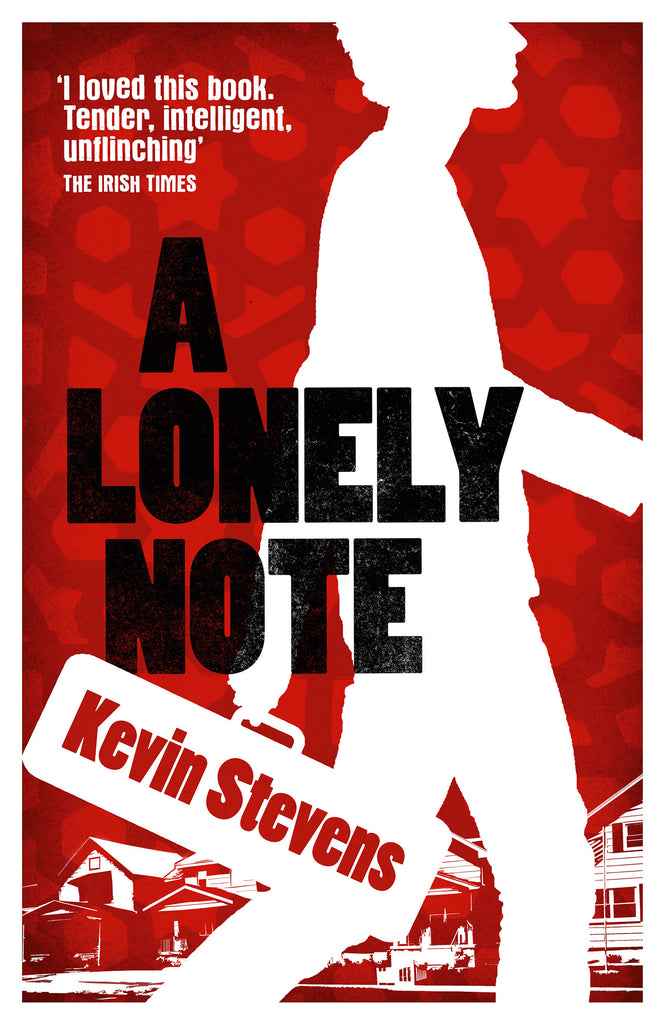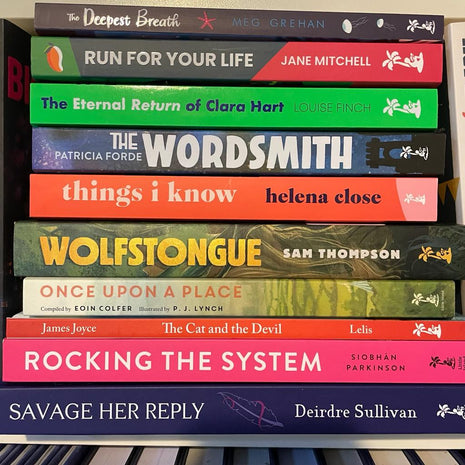- Description
- Praise
- Reader Reviews
'Coming out of the music store, squinting at these students in the sunlight, Tariq felt as if they lived a life of freedom he would never know.'
Peace and violence, faith and mistrust, thriller and literary fiction – this is a supreme story of a young man caught between two worlds.
Tariq is beset by danger on the streets and by conflict at home. Music is his only consolation. When he forms a new friendship with the volatile but intriguing record-store owner, Jamal, Tariq discovers the world of jazz and the man he could become.
The violence that has long threatened finally erupts, and things suddenly clarify for Tariq. He takes the ultimate risk – not on behalf of his friend but on behalf of his enemy – and the disparate worlds of modern America and traditional Islam come together in an unexpected and gripping resolution.
PRAISE FOR A LONELY NOTE
I loved this book. Its tender, intelligent interrogation of male adolescent desperation is unflinching, as is its take on other big subjects: school bullying, what it’s like to be the only son of Iraqi Muslim migrants living and working in the US, religion, post-traumatic stress disorder, the contested limits of parental control (made all the more fractious by refugee fear – “what will the neighbours say?” amplified by a thousand), traditional Iraqi music, traditional Iraqi food (oh my, does it sound delicious), jazz and sex, with the sex – praise the Lord – so delicately portrayed that the young people retain their dignity. The story belts along with a smashing hostage-taking ending, with Tariq wondering why, like so many American scenes, it felt scripted. The author is an American who was educated here and now lives partly here and partly in Boston. This is his seventh novel. Hats off to the publisher, Little Island, for a handsomely produced tale about the difficulties and dangers of modern life. More, please. – The Irish Times (Rosita Sweetman)
Whether the Muslim community can ever be fully accepted into American society is a question tacitly posed by Kevin Stevens in his engaging new novel A Lonely Note… With its focus on a young Muslim simultaneously alienated from and mesmerised by American life, Stevens’s novel has similarities with Terrorist, John Updike’s penultimate novel published in 2006. The comparison is facilitated by Stevens’s sharing with Updike a preoccupation with how the senses are continually quickened by the richness of the world: whether it’s the colour wheel of the seasons, the sound of jazz or a whip-poor-will, or even the guilty pleasure of a candy bar consumed during religious fasting. – Dublin Review of Books (link)
The descriptions of teenage uncertainty, the violent swings between passion and indifference, really stand out because of how spot-on Stevens gets them… What Stevens excels in are the descriptions of Tariq’s adolescent disquietude. And how universal a feeling is that? Not only is this a teenage circumstance but one that anyone who has gone through a crisis in any stage of life is sure to recognise, relate to and appreciate reading about when it’s written this well. – Irish Independent well. – Irish Independent
Description
'Coming out of the music store, squinting at these students in the sunlight, Tariq felt as if they lived a life of freedom he would never know.'
Peace and violence, faith and mistrust, thriller and literary fiction – this is a supreme story of a young man caught between two worlds.
Tariq is beset by danger on the streets and by conflict at home. Music is his only consolation. When he forms a new friendship with the volatile but intriguing record-store owner, Jamal, Tariq discovers the world of jazz and the man he could become.
The violence that has long threatened finally erupts, and things suddenly clarify for Tariq. He takes the ultimate risk – not on behalf of his friend but on behalf of his enemy – and the disparate worlds of modern America and traditional Islam come together in an unexpected and gripping resolution.
Praise
PRAISE FOR A LONELY NOTE
I loved this book. Its tender, intelligent interrogation of male adolescent desperation is unflinching, as is its take on other big subjects: school bullying, what it’s like to be the only son of Iraqi Muslim migrants living and working in the US, religion, post-traumatic stress disorder, the contested limits of parental control (made all the more fractious by refugee fear – “what will the neighbours say?” amplified by a thousand), traditional Iraqi music, traditional Iraqi food (oh my, does it sound delicious), jazz and sex, with the sex – praise the Lord – so delicately portrayed that the young people retain their dignity. The story belts along with a smashing hostage-taking ending, with Tariq wondering why, like so many American scenes, it felt scripted. The author is an American who was educated here and now lives partly here and partly in Boston. This is his seventh novel. Hats off to the publisher, Little Island, for a handsomely produced tale about the difficulties and dangers of modern life. More, please. – The Irish Times (Rosita Sweetman)
Whether the Muslim community can ever be fully accepted into American society is a question tacitly posed by Kevin Stevens in his engaging new novel A Lonely Note… With its focus on a young Muslim simultaneously alienated from and mesmerised by American life, Stevens’s novel has similarities with Terrorist, John Updike’s penultimate novel published in 2006. The comparison is facilitated by Stevens’s sharing with Updike a preoccupation with how the senses are continually quickened by the richness of the world: whether it’s the colour wheel of the seasons, the sound of jazz or a whip-poor-will, or even the guilty pleasure of a candy bar consumed during religious fasting. – Dublin Review of Books (link)
The descriptions of teenage uncertainty, the violent swings between passion and indifference, really stand out because of how spot-on Stevens gets them… What Stevens excels in are the descriptions of Tariq’s adolescent disquietude. And how universal a feeling is that? Not only is this a teenage circumstance but one that anyone who has gone through a crisis in any stage of life is sure to recognise, relate to and appreciate reading about when it’s written this well. – Irish Independent well. – Irish Independent




